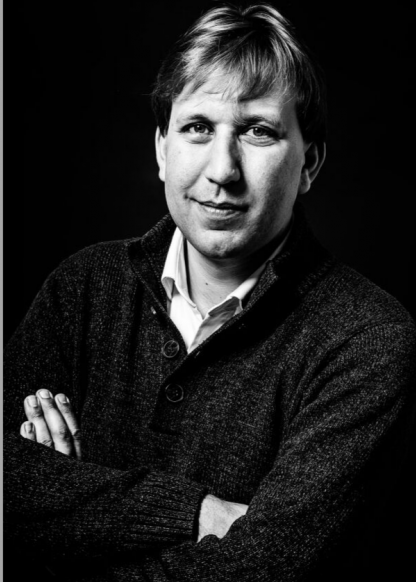Professor to present on finding planets with star data

Courtesy of Lecture Series website
Chris Lintott, an astrophysics professor at the University of Oxford and a research fellow at New College, will present “How to Find a Planet Without Leaving Your Couch” Tuesday in the Great Hall of the Memorial Union.
October 14, 2019
Students and the public are welcome to learn how to hunt for planets from home with the presentation, “How to Find a Planet Without Leaving Your Couch,” at 8:15 p.m. Tuesday in the Great Hall of the Memorial Union.
Chris Lintott, an astrophysics professor at the University of Oxford and a research fellow at New College, will be presenting the lecture to teach listeners how to discover planets using astronomical data and their own computer.
“[Lintott] has been a major proponent of ‘citizen science,’” said Steven Kawaler, distinguished professor in the physics and astronomy department. “In particular, leveraging the computers that we all have and use into a vast network of human ‘mini-experts’ that can be brought to bear to work on scientific problems for which computers alone are inadequate.”
Kawaler said Lintott will discuss how NASA’s Kepler and TESS missions have provided data on over 100,000 stars and how there is only so much scientists can examine on their own.
“Finding the signature of planets in the data can be done by computers but only so well,” Kawaler said. “Some stars show variations that mimic planets, and it’s hard to teach a computer to do it perfectly.”
With his position as principal investigator at Zooniverse, a project enlisting the help of everyday citizens for scientific research, Lintott has already shown over a million people how to discover planets.
Lintott will teach listeners to do the same and find new planets from the comfort of their homes with his presentation Tuesday.
“Maybe [those attending will] join the hunt or another citizen science project,” Kawaler said. “But in any case, they’ll see some amazing results. [Lintott] knows how to make the science interesting and fun.”






